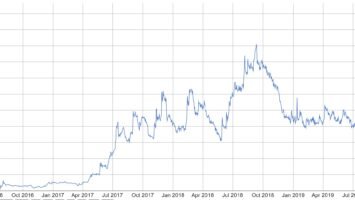
To paraphrase “The Communist Manifesto,” it seems to many that all the ruling powers of the state — also known simply as “the elite” — have entered into some unholy alliance to exorcise the still-remaining spectre of independence and human freedoms, which they seem to believe haunts the modern world. These “powers” would include the World Economic Forum, the Bill and Melinda Gates Foundation, the Scientific Academia Network, all central bankers, the European Union, the City of London Corporation, the United Nations, the Kremlin, the Chinese Communist Party, the United States of America’s presumed “deep state,” Wall Street, mass media, the Islamic Jihaddist Emirates across the Middle East, the Socialist International, the Sao Paulo Forum in Latin America and the Jewish nationalist movement, Zionism.
All of these globalist powers are waging their own wars to see who will become the “one party to rule them all,” or to reach a one-world government agreement. By their increasingly-oppressive policies, all of them seem to have declared war on a common enemy: the individuals living within their boundaries, the so-called “citizens.” You may notice that all nations are also currently at war with one another economically. They are all attempting to starve each other through trade restrictions, and this occasionally erupts into violent warfare. This is a consequence of governments controlling the money supply. And money is, indeed, the core element of all human interactions.
Computer technology is on the verge of providing the ability for individuals and groups to communicate and interact with each other in a totally anonymous manner. Two persons may exchange messages, conduct business, and negotiate electronic contracts without ever knowing the true name or legal identity of the other. Interactions over networks will be untraceable, via extensive re-routing of encrypted packets and tamper-proof boxes which implement cryptographic protocols, with nearly perfect assurance against any tampering. Reputations will be of central importance, far more important in dealings than even the credit ratings of today. These developments will alter completely the nature of government regulation, the ability to tax and control economic interactions, the ability to keep information secret, and will even alter the nature of trust and reputation.
Privacy is necessary for an open society in the information age. Privacy is not secrecy. A private matter is something one doesn’t want the whole world to know, but a secret matter is something one doesn’t want anybody to know. Privacy is the power to selectively reveal oneself to the world.
If two parties have some sort of dealings, then each has a memory of their interaction. Each party can speak about their own memory of this; how could anyone prevent it? One could pass laws against it, but freedom of speech, even more than privacy, is fundamental to an open society; we seek not to restrict any speech at all. If many parties speak together in the same forum, each can speak to all the others and aggregate together knowledge about individuals and other parties. The power of electronic communications has enabled such group speech, and it will not go away merely because we might want it to.
The technology for this revolution — and it surely will be both a social and economic revolution — has existed in theory for the past decade. The methods are based upon public-key encryption, zero-knowledge interactive proof systems, and various software protocols for interaction, authentication, and verification.
“The state” will of course try to slow or halt the spread of this technology, citing national security concerns, use of the technology by drug dealers and tax evaders, and fears of societal disintegration. Many of these concerns will be valid; crypto-anarchy will indeed allow national secrets to be traded freely and will allow illicit and stolen materials to likewise be traded. An anonymous computerized market will even make possible abhorrent markets for assassinations and extortion. Various criminal and foreign elements will be active users of CryptoNet. But this will not halt the spread of freedom, as ”the state” tries to strip individuals of their properties.
To a human, any violation of property, starting with a human’s own body and extending to the goods he has produced with his labor, is an injustice. Therefore, no property equals no freedom in the social and political realms.Humans, like other social mammals, appear to have an entire circuit within their nervous system that detects and responds powerfully to injustice.
And this violation of individuals’ properties is called slavery. And the state is “the slavery corporation” par excellence; the subtle parasitic caste thanks to the monopoly of violence.
Monopolies can’t exist unless they are supported by governments that protect them from competition. Monopolies in security and defense services have the same type of effects as other monopolies — poor quality products with high prices.
Governments particularly enjoy monopolies on security services because it prevents citizens from being protected from the government. One of the most effective ways that corrupt governments steal from their people is through printing money after they establish a monopoly on money.
A side effect of money printing is the boom-and-bust cycle that results in massive bad investment and great destruction of human efforts. Government intervention into the economy has greatly held back humanity from solving problems in the same way that it hindered citizens in Soviet Russia under communism. Thus, the removal of government intervention into the economy will result in rapid advancements in technology and quality of life.
Keep this in mind: money does not need to be provided by governments. Rather, it is another example of a solution discovered by the interactions of free people (the market) that was monopolized by the government. Money is used as a medium of exchange, a store of value and a unit of account. These are specific attributes of what we mean by the word “money.”
Money is a useful tool that facilitates better decision making and enables fruitful trades that would not otherwise take place. A barter economy is an underdeveloped economy. Bitcoin is the only money that is government resistant and this is the critical feature that makes it a good choice for preserving wealth.
The state has created the legal tender (fiat) system, which is the most subtle and sophisticated form of slavery mankind has developed to date. In this scheme, the predator forces the victims to use his “money” for transactions.
Moreover, the money is an asset that can be easily produced by the predator. For example, paper and insecure electronic money are common choices. The deception varies, but it generally applies the justifications of monopoly slavery to the production of money. The attacker also claims that using violence to prevent the use of other money is not a crime.
Bitcoin will break the legal tender monopolies because it is not bulky to transport in large amounts. As a result, it is not dependent upon approval from the predator, through border checks or the banking monopoly, for transfer to and between victims.
The first effect of this will be to reduce the amount of legal tender kept in victims’ savings. Bitcoin, by providing a store of value that is difficult to steal and has no storage costs, provides a better alternative. And since it is likely to become money in the future, victims will be rewarded with significant gains for investing in bitcoin. This reduces the predator’s ability to steal from victims by printing more money as the overall market value of the predator’s money is reduced.
Secondly, bitcoin will compete with the predator’s money as a medium of exchange. Once a large quantity of victims become investors, it will be natural for them to use bitcoin itself for any immediate exchanges. However, at this stage, and for exchanges that involve contracts and debt, the debtor will still choose to pay in the less valuable legal tender.
Finally, bitcoin will enable private security that will not recognize the predator’s money as a required, or even legitimate, means of paying debts. If a contract specifies payment in bitcoin, any security provider, other than the predator, would recognize the contract as written.
Remember: money must be one thing, and one thing only. If a society uses many monies it has begun to revert to a barter economy and money does not exist. Currently monies end at national borders, but this is also a result of government intervention.
Bitcoiners disdain to conceal their views and aims. They openly declare that their ends can be attained only by the will of humans acting over all existing economical barriers. Let the ruling classes tremble at a financial evolution. We are dedicated to building anonymous systems. We are defending our privacy with cryptography, with anonymous mail forwarding systems, with digital signatures, and with electronic money.
Our code is free for all to use, worldwide. We don’t much care if you don’t approve of the software we write. We know that software can’t be destroyed and that a widely-dispersed system can’t be shut down. The individuals have a world to win.
Bitcoin nodes of the world, decentralize! You have nothing to lose but your fiat chains!
This is a guest post by Koty Auditore. Opinions expressed are entirely their own and do not necessarily reflect those of BTC Inc. or Bitcoin Magazine.


Comments (No)